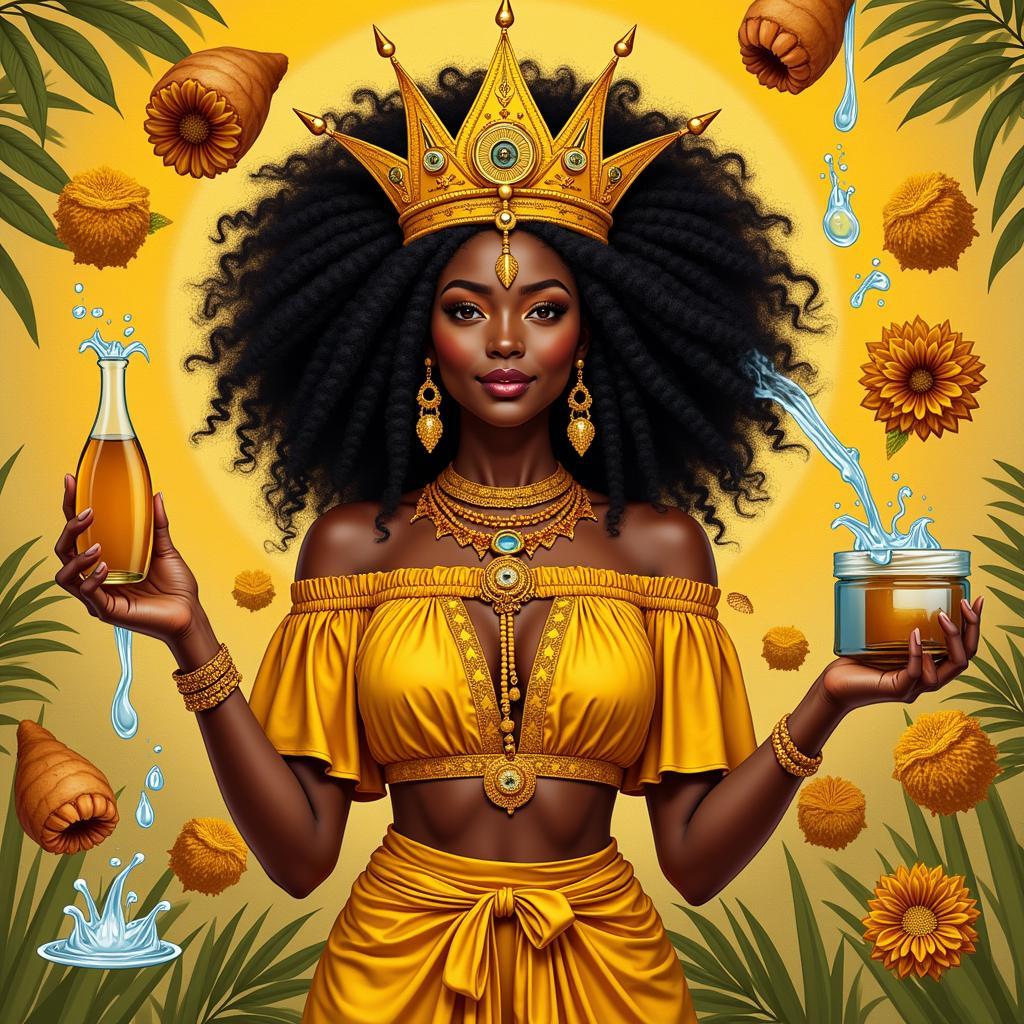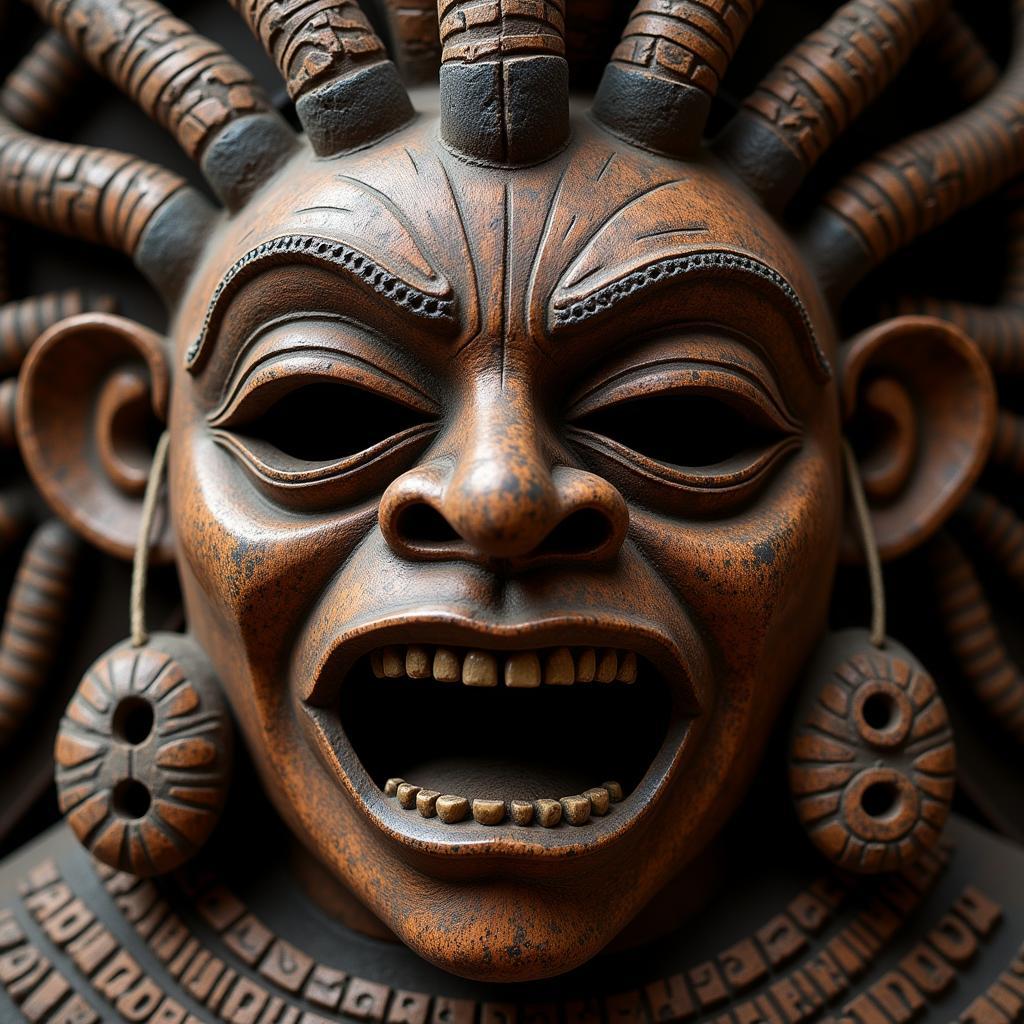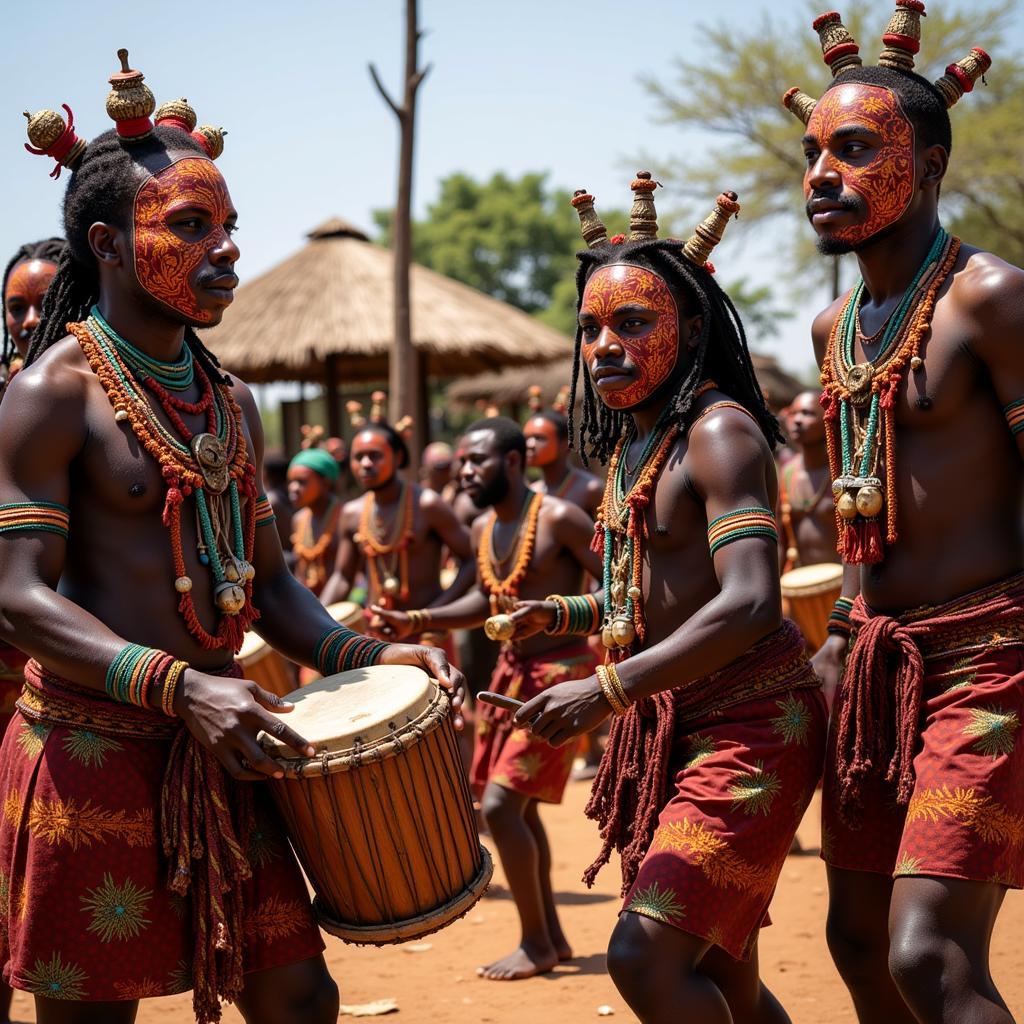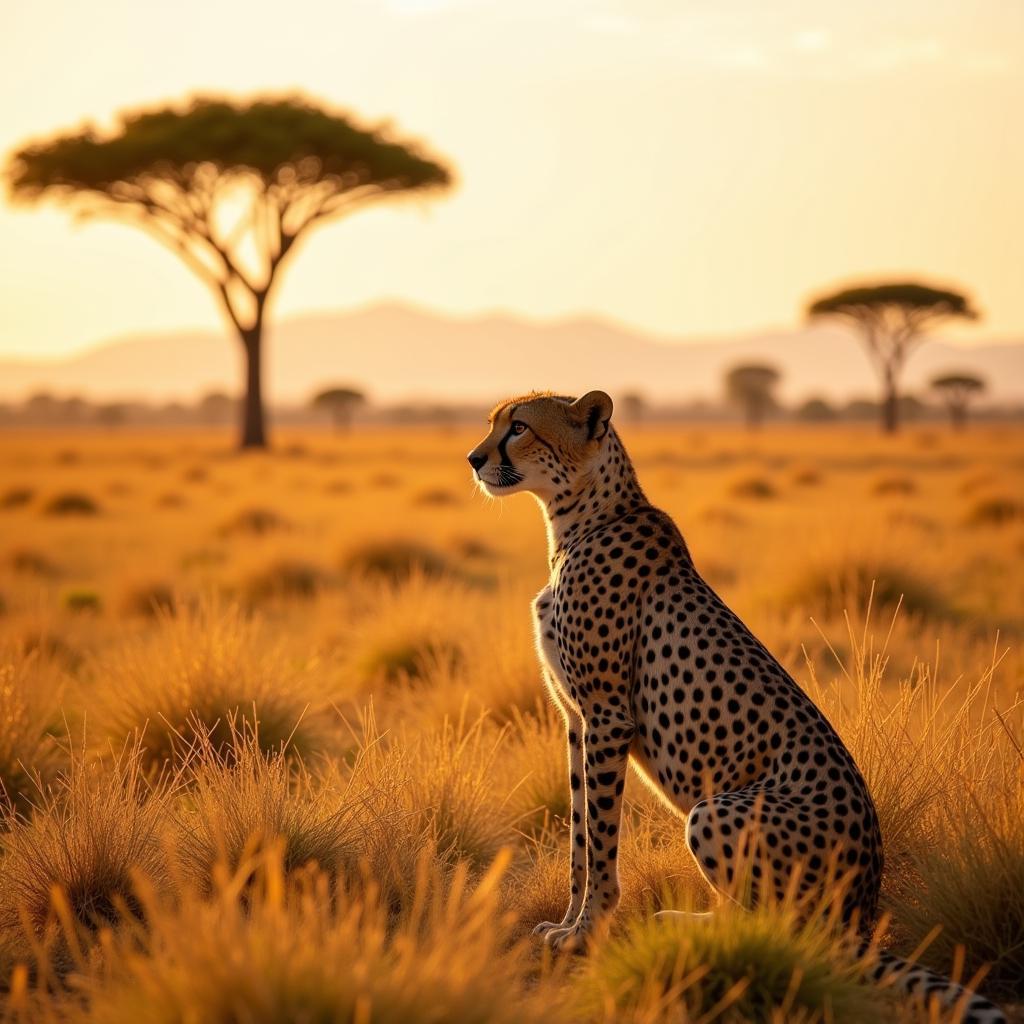Exploring the Rich Tapestry of African Gods and Goddesses
African Gods And Goddesses represent a vibrant tapestry of beliefs and traditions across the diverse continent. These deities, deeply intertwined with the natural world and the rhythms of daily life, offer a fascinating window into the rich spiritual heritage of Africa. From powerful creators to benevolent protectors, the pantheon of African deities reveals a complex understanding of the universe and humanity’s place within it.
Unveiling the Power and Significance of African Gods and Goddesses
Unlike the monolithic pantheons of some other cultures, African gods and goddesses are often localized, reflecting the unique beliefs and practices of specific communities. This diversity is a testament to the continent’s rich cultural landscape. These deities are not simply mythical figures; they are active forces in the lives of their followers, invoked for guidance, protection, and intervention in both mundane and extraordinary matters. They embody the values, hopes, and fears of the people who worship them. You can find more information on 7 african gods and goddesses.
The Role of Deities in African Cosmology
African gods and goddesses play a vital role in shaping the cosmology and worldview of various African cultures. They represent the forces of nature, the ancestors, and the moral principles that govern society. Their stories, passed down through generations, explain the origins of the world, the nature of humanity, and the relationship between the living and the dead. These narratives provide a framework for understanding the universe and one’s place within it.
Diverse Representations of African Deities
African deities are represented in a variety of forms, from anthropomorphic figures to animals, plants, and natural phenomena. This diversity reflects the close connection between the spiritual and the natural world in African belief systems. The representations often incorporate symbolic elements that convey the deity’s powers, attributes, and domain of influence. For further visual exploration, see african gods and goddesses pictures.
African Gods and Goddesses: A Closer Look at Regional Pantheons
The vastness of Africa has given rise to a multitude of regional pantheons, each with its own distinct deities and associated myths. Exploring these regional variations offers a deeper appreciation for the diversity and complexity of African religious traditions. From the Yoruba Orishas of West Africa to the Egyptian Netjeru, each pantheon reflects the unique cultural and historical context of its people.
Yoruba Orishas: A West African Pantheon
The Yoruba people of West Africa have a rich and complex pantheon of Orishas, each representing a specific force of nature or aspect of life. Orishas like Ogun, the god of iron and war, and Oshun, the goddess of love and beauty, are revered for their power and influence. Their stories and rituals are deeply embedded in Yoruba culture and continue to be practiced today. Find a comprehensive list at african gods and goddesses names.
 Representation of Yoruba Orisha Oshun
Representation of Yoruba Orisha Oshun
Egyptian Netjeru: A North African Pantheon
The ancient Egyptians worshipped a pantheon of Netjeru, who embodied various aspects of the natural world and human experience. Deities like Ra, the sun god, and Osiris, the god of the underworld, played central roles in Egyptian mythology and religious practices. Their stories and iconography are preserved in the monumental architecture and intricate artwork of ancient Egypt. More information can be found on african gods wikipedia.
Understanding the Enduring Legacy of African Gods and Goddesses
Despite the impact of colonialism and the spread of other religions, the belief in African gods and goddesses persists in many communities across the continent. These traditions continue to provide a sense of identity, belonging, and spiritual connection. The enduring legacy of these deities speaks to the profound influence they have had on African culture and history. For a broader understanding, check out the african deities encyclopedia.
 African Mask Depicting a Deity
African Mask Depicting a Deity
“African deities are not relics of the past,” says Dr. Abena Osei, a renowned scholar of African religions, “they are living forces that continue to shape the lives and beliefs of millions of people across the continent and the diaspora.” Their stories offer valuable insights into the rich spiritual heritage of Africa.
In conclusion, exploring the world of African gods and goddesses provides a profound understanding of the continent’s diverse cultures and spiritual beliefs. These deities, representing forces of nature, ancestral spirits, and moral principles, offer a fascinating glimpse into the complex tapestry of African religious traditions.
FAQ
- What is the significance of African gods and goddesses? They represent the values, hopes, and fears of the people who worship them, shaping their understanding of the universe.
- Are African deities localized or universal? They are often localized, reflecting the unique beliefs of specific communities across the diverse continent.
- How are African deities represented? They are depicted in various forms, from human-like figures to animals, plants, and natural forces.
- What are some examples of regional African pantheons? Examples include the Yoruba Orishas of West Africa and the Egyptian Netjeru.
- Do people still believe in African gods and goddesses today? Yes, these beliefs persist in many communities across Africa and the diaspora.
- Where can I learn more about specific African deities? Resources like the African Deities Encyclopedia offer comprehensive information.
- How do African gods and goddesses connect to the natural world? They are often deeply intertwined with nature, representing its forces and rhythms.
Need support? Contact us 24/7: Phone: +255768904061, Email: kaka.mag@gmail.com, or visit us at Mbarali DC Mawindi, Kangaga, Tanzania.


